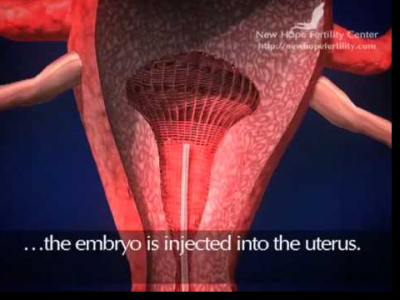Endometrial receptivity test was: what is it and what is it for?
The endometrial receptivity test, also known as the ERA Test or ERA Test, is a molecular diagnostic test used to determine the state of receptivity of the endometrium.
Thanks to this test, implantation failures are less likely to occur since it allows us to determine the most appropriate day to carry out the embryo transfer.
Below you have an index with all the points that we will discuss in this article.
Index
Endometrial receptivity test ERA: what is it and what is it for?- 1. Previous knowledge
- 1.1. Endometrial receptivity
- 1.2. Implementation window
- 2. Test of endometrial receptivity
- 2.1. What is needed for the endometrial receptivity test?
- 2.2. Obtaining the biopsy: when and how
- 2.3. What does the ERA endometrial receptivity test analyze?
- 3. Embryo transfer after the ERA Test
- 4. Application in assisted reproduction
- 5. Questions from users
- 5.1. What is the price of the endometrial receptivity test?
- 5.2. Is an operation necessary for the ERA test?
- 5.3. Can endometrial receptivity be improved?
- 5.4. Is the ERA Test the solution to the implantation failure?
Previous knowledge
Before explaining what this test consists of, it is convenient to introduce some necessary concepts to better understand what the purpose of the test is.

Endometrial receptivity
The endometrium is the mucous layer that internally covers the uterus. Thanks to the action of the female sex hormones, estradiol and progesterone, as the menstrual cycle progresses, it thickens and acquires numerous glands that secrete substances to favor the implantation of the embryo.
Endometrial receptivity alludes to the ability of the endometrium to interact with the embryo for implantation to occur. This property of the endometrium varies throughout the menstrual cycle.
Due to this, embryonic implantation can not occur at any time of the woman's cycle, but is restricted to a specific period of the same known as the implantation window.
Implementation window
The concept of implantation window refers to the period of time in which the endometrium is receptive. During this period, the endometrium has already acquired the morphological and functional characteristics necessary for embryo implantation to occur.
This phenomenon begins, normally, between 5 and 7 days after ovulation has occurred. However, there may be cases in which the implementation window is displaced and does not occur on those specific days.
Endometrial receptivity is essential to achieve pregnancy, because even if we get embryos of very good quality, if they are transferred at an inappropriate time of the cycle, implantation failure will probably occur.
Comments
Post a Comment